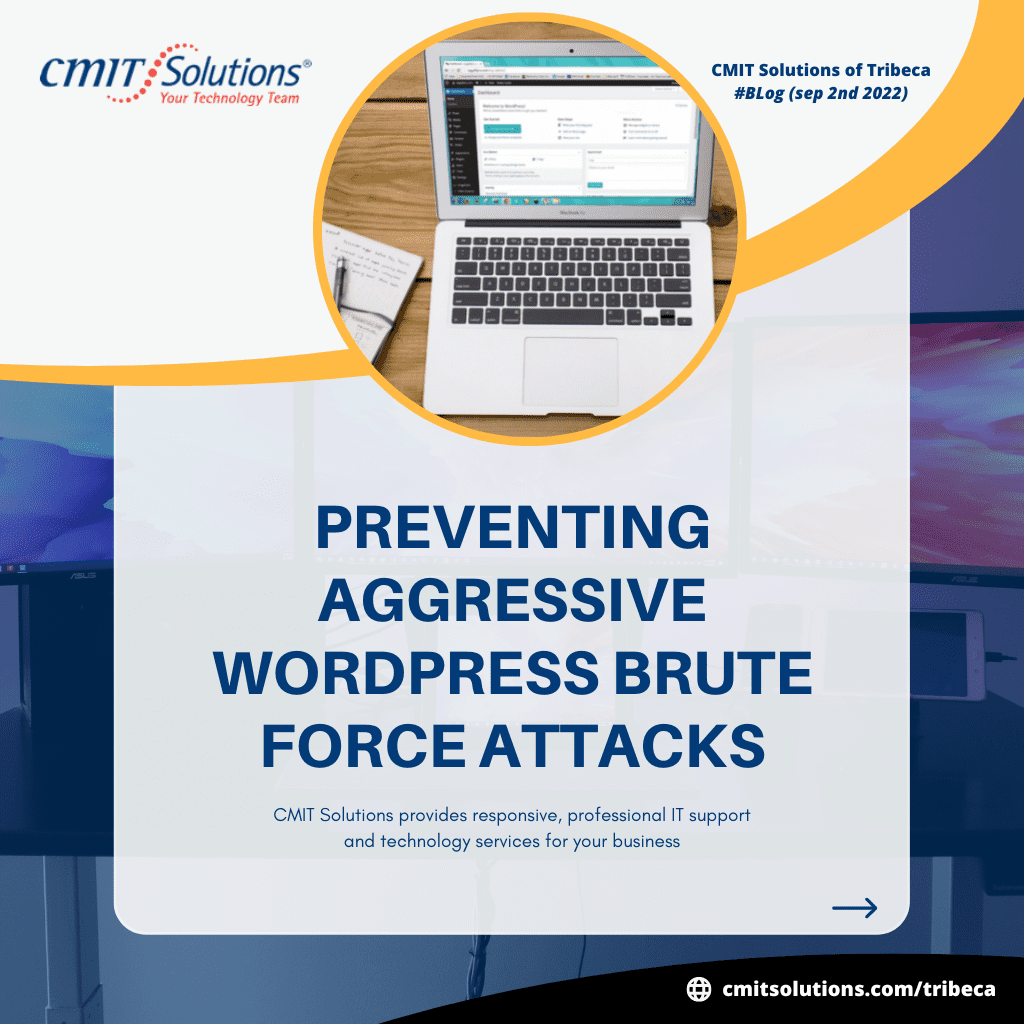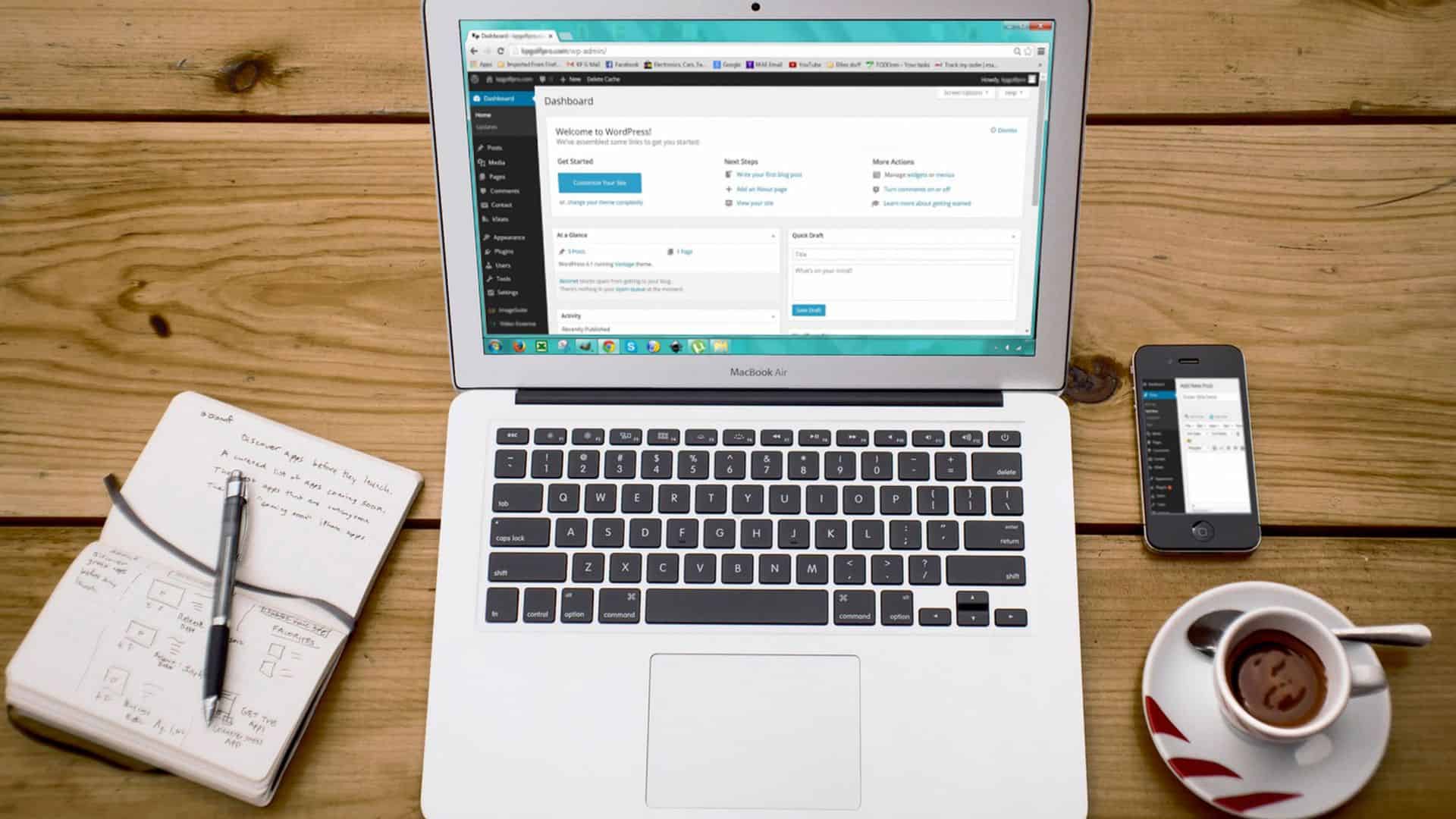Word Press is one of the most popular site-building and content management systems. However, its popularity also makes it a target for hackers who use brute force attacks to gain access to WordPress sites. This article will discuss brute force attacks and how you can prevent them from happening to your WordPress site.
How to Protect Your Word Press Site from Brute Force Attacks
If you’re running a WordPress site, it’s essential to take steps to protect it from brute force attacks. Brute force attacks are the type of attack where hackers try to gain access to a site by trying to guess the username and password. They can use software to automate the process of thinking, making it easy to try thousands of different combinations very quickly.
There must be some things to protect your site from brute force attacks:
1. Use a difficult password for your WordPress administrator account. A strong password is long, contains both upper and lower case letters, and includes numbers and symbols. Avoid using common words or phrases that would be easy to guess.
2. Install a plugin that adds a layer of security to your login process. For example, the Login Lockdown plugin will lock out users who try to log in with an wrong password more than a certain number of times.
3. Use a secure hosting service that provides additional protection against brute-force attacks. Services like SiteLock offer real-time malware scanning and blocking of malicious IP addresses.
By following such steps, you can help to make sure that your WordPress site is safe from brute force attacks.
Some WordPress Security Tips That Anyone Can Apply (without plugins)
1. Use a difficult password for your WordPress admin account and never use the same password at more than one site. A strong password is 12 characters long and includes a mix of uppercase and lowercase letters, numbers, and symbols.
2. Keep your WordPress installation up to date by installing the latest security releases as soon as they’re available. You can update WordPress automatically by using the Automatic Update feature.
3. Don’tDon’t use “admin” as your username. If you must use a username that’s easy to guess, choose something other than “admin” and make sure it’s not easily guessed.
4. Use two-factor authentication for an extra layer of Security. Two-factor authentication requires you to enter a code sent to your phone or email in addition to your password when logging in.
5. Limit login attempts to reduce the chances of someone guessing your password. You can do this by setting up a plugin like Login Lockdown or limiting login attempts in your server configuration file.
6. Disable file editing from the WordPress admin area so that someone can’t accidentally or maliciously change any of your site’s files. You can do this by adding the
WordPress brute force attacks
If you’re you’re running a WordPress site; you’re likely aware of the threat of brute force attacks. These attacks are becoming increasingly common and can be complicated to defend against.
One of the best ways to defend against brute force attacks is to use a plugin like Wordfence. Wordfence is a security plugin that helps block brute force attacks by monitoring for suspicious activity and blocking IP addresses known to be used for attacks.
Another good defense against brute force attacks is ensuring that your passwords are strong and unique. By using a password manager can help with this, as it can generate strong passwords for you and keep them safe and secure.
Finally, keep an eye on your sites site’s activity logs. If you see any suspicious activity, make sure to investigate and take action accordingly. These steps can help to protect your WordPress site from brute force attacks.
How to prevent WordPress brute force attacks
If you’re a WordPress user, you’re probably well aware of the dangers of brute force attacks. These attacks can be devastating to your site, and can even compromise your Security.
Fortunately, you can do a few things to prevent brute-force attacks on your WordPress site. In this blog post, we’ll show you how to take advantage of some of WordPress’s built-in security features to protect your site from these attacks.
First, you’ll you’ll want to ensure that you’re you’re using a strong password for your WordPress admin account. A strong password should be eight alphabets long and should include a mix of letters, numbers, and symbols.
Next, you’ll you’ll want to enable two-factor authentication for your WordPress admin account. Two-factor authentication adds an extra layer of Security to your login process by entering a code from your phone into your password.
Finally, you can also install a security plugin like Wordfence or Sucuri to add even more protection to your WordPress site. These plugins will help block brute force attacks and other malicious activity.
these steps can help to prevent brute force attacks on your WordPress site and keep your data safe
The best WordPress security plugins
As the number of WordPress sites continues to grow, so do the number of brute force attacks. A severe force attack is an automated process of trying to guess a password by trying different combinations over and over again until it gets lucky.
While there’sthere’s no guaranteed way to prevent these attacks from happening, there are a few things you can do to make it difficult for hackers to guess your password. One of the best ways to do this is to use security plugin.
There are multiple great security plugins available for WordPress, but here are a few of our favorites:
1. Word fence Security
Word fence Security is one of the most popular security plugins for WordPress. It includes two-factor authentication, real-time blocking of known malicious IP addresses, and malware scanning.
2. iThemes Security
iThemes Security is another excellent security plugin with two-factor authentication, malware scanning, and brute force protection.
3. BulletProof Security
BulletProof Security is an excellent option if you’re you’re looking for comprehensive security features. It includes malware scanning and firewall protection login security and database encryption.
Word Press security tips
1. Use a strong password for your Word Press admin account. A strong password is at least eight characters long and includes a mix of upper and lowercase letters, numbers, and symbols.
2. Don’tDon’t use the same password for multiple accounts. If someone guesses your password, they will have access to all of your funds.
3. Keep your WordPress installation up to date. New versions of WordPress include security fixes for vulnerabilities that an attacker could exploit.
4. Use a security plugin like Wordfence to help protect your site. Security plugins can help block malicious traffic and detect suspicious activity.
5. Be careful when downloading plugins and themes from untrustworthy sources. Some plugins and themes contain malicious code that can be used to take over your site.
6. Regularly back up your WordPress site. This will allow you to recover your site if an attacker ever compromises it
Conclusion
In conclusion, preventing WordPress brute force attacks is essential for keeping your website secure. You can use multiple methods to achieve this, including using a security plugin, changing your passwords regularly, and ensuring that your site is always up to date. By taking these steps, you can rest assured that your WordPress site will be safe from any potential attacks.







